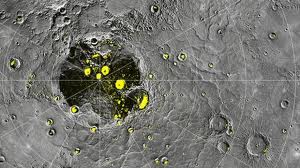Overeating has been linked to a host of health hazards like high blood pressure, diabetes and stroke. Conditions such as memory loss, dementia and even Alzheimer's may also be added to the list soon, according to a new study.
Preliminary findings of a study on ageing conducted by the Mayo Clinic indicate that overeating may greatly increase the risk of memory loss for elderly people.
The results found a correlation between caloric intake in the elderly and the onset of mild cognitive impairment (MCI) - the stage between normal age-related memory loss and early Alzheimer's disease.
In 2006, the Mayo Clinic chose a random sample of 1,233 people in Minnesota, aged between 70 and 89 years, with none previously diagnosed with dementia.
They asked the participants to fill out a questionnaire describing their diets over the previous year. On the basis of their answers, the researchers grouped the participants into three categories: those whose daily caloric consumption was between 600 and 1,526 calories; between 1,526 and 2,143; and between 2,143 and 6,000.
Each participant then underwent a series of MRI brain scans and cognitive tests. Correlating caloric intake with test performance, the researchers found the odds of having MCI more than doubled for those in the highest calorie-consuming group compared with those in the lowest calorie group.
"With MCI, the person is not demented. But when you test them on certain memory tests they do poorly as compared to their age-, education- and sex-matched peers," study author Yonas Geda was quoted as saying by Scientific American.
"We observed that a daily caloric intake in excess of 2,143 was associated with a significant chance of having MCI. If I am consuming more than 2,143 calories per day, my odds of having MCI is twice that of somebody that consumes 1,526 calories per day," Geda added. However, there are several caveats to these findings, said the researchers, who will present their findings at the annual meeting of the American Academy of Neurology in New Orleans in April.
For instance, the report did not take into account the types of food and beverages consumed nor did it examine the rate at which food was eaten throughout a day, Geda said. Geda acknowledged that the research to better understand the link between MCI and eating in the elderly is still preliminary, but he noted that it does create a foundation for more extensive cause-and-effect research they are currently pursuing.

